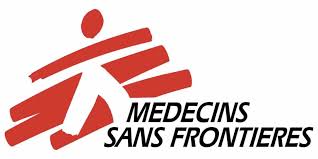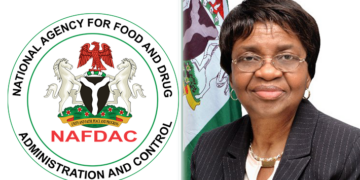Médecins Sans Frontières (MSF) also known as Doctors Without Borders, has intensified efforts to combat malnutrition across seven states in the northern part of the country, treating over 300,000 children in 2024.
The figure represents 25% against the number of malnourished children treated in the previous year.
MSF operates facilities that attend to malnourished children in Borno, Bauchi, Katsina, Kano, Sokoto, Zamfara and Kebbi states. Across these states, it manages 10 inpatient facilities and more than 30 outpatient feeding centres.
Speaking to our correspondent in Bauchi, MSF’s head of mission in Nigeria, Adam Ousmane Ngari, said the organisation operates all-year-round malnutrition centres to give care to children.
He said, “In Bauchi State, MSF’s facility in Kafin Madaki, Ganjuwa local government, stands as a beacon of hope for malnourished children. The 250-bed inpatient feeding centre expands to 350 beds during peak periods, with additional tents erected to handle the overflow of cases.
“We run three outpatient activities in Kafin Madaki, Kafin Liman and Miya primary healthcare centres, with outreach activities in Miya ward which has eight ICCM villages.”
The head of mission said the outreach programmes in Miya ward cover eight villages, bringing essential healthcare services closer to vulnerable populations.
Mr Ngari added, “From January to April this year (2025), we’ve attended to 27,868 children suffering from malnutrition, representing a 34.5% increase from the 20,721 children seen in the same period in 2024.”
He, however, noted that despite these successes, challenges persist.
“Late presentation remains a critical issue,” he said, noting that many children arrive with severe complications like kwashiorkor, respiratory infections or malaria, which make treatment more complex.
Mr Ngari explained that MSF employs an Integrated Community Case Management (ICCM) strategy, training community health workers to diagnose and treat illnesses like malaria, pneumonia and diarrhea in remote areas.
He said admissions for severe malnutrition requiring hospitalisation in Bauchi had decreased slightly by 4.8%, from 4,832 in early 2024 to 4,598 in 2025, a sign that ICCM efforts may be alleviating the burden on hospitals.
Mr Ngari said the rising numbers underline the growing need for more intervention for malnourished children in Nigeria, calling on stakeholders to join forces with MSF to continue to provide healthcare support to malnourished children in northern Nigeria.
He commended the support MSF received from the Bauchi government over the last three years, a development which enables MSF to achieve its set goal and render healthcare services to children across Bauchi and other neighbouring states.





